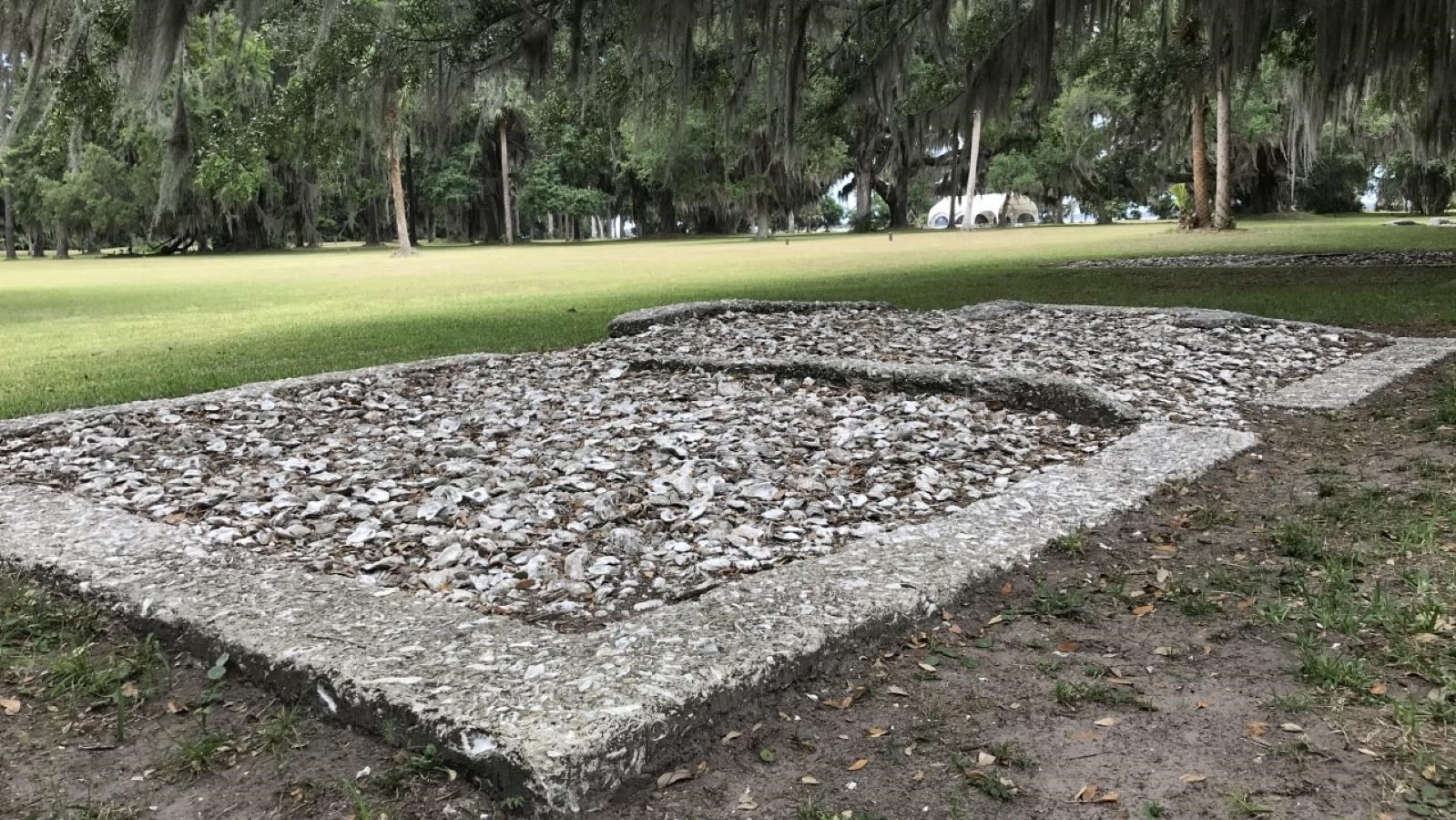Last updated: June 6, 2021
Place
Mary Musgrove House

NPS Photo
Historical/Interpretive Information/Exhibits
By the time of James Oglethorpe’s arrival in Georgia, the coastal native population had already been decimated by earlier European contact. The remaining tabby foundation marks the home of Mary Musgrove Matthews Bosomworth, who lived on the lot in the 1740s. Half-Creek Indian and half-British, Musgrove was a frontier trader and Oglethorpe’s interpreter and liaison to the Indians. Her diplomacy bridged the gap between the two cultures and aided Oglethorpe’s desire for humane and peaceful relations with the Indians. She also helped secure Indian alliances against the Spanish.
Archeological evidence shows that a living area was located on the left and a cooking area with a fireplace on the right. Sleeping quarters occupied a second floor or loft. Today it may be hard to imagine that entire families lived together in houses as small as this. Frederica’s settlers followed the same rural house-building traditions as their counterparts in England. James Oglethorpe chose settlers accustomed to hard work and plain living. Much of colonial life was spent outdoors working and gathering food.
